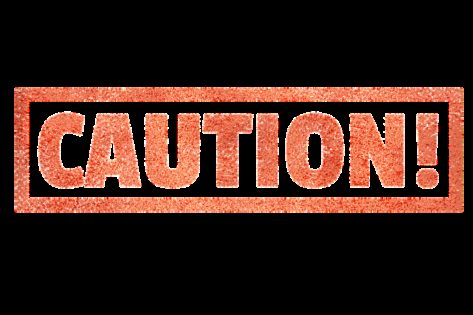 If you want to start a column or have been invited to do so, realize what you’ve taken on. You may envision tossing off at pizza fests or cocktail parties, eyes modestly lowered, “Oh, I’m a regular columnist for Extreme Quilting.”
If you want to start a column or have been invited to do so, realize what you’ve taken on. You may envision tossing off at pizza fests or cocktail parties, eyes modestly lowered, “Oh, I’m a regular columnist for Extreme Quilting.”
But … A quality column takes consistent effort, thought, and rewriting. Here are seven important considerations from my own column-writing and the advice of several column writers I interviewed.
1. Produce on Schedule
The editor counts on you to fill a certain space for a certain issue. If you have to beg occasionally for an extension, fine, but don’t make this a habit. Resist supposedly unimpeachable excuses (“My labradoodle ate the hard disk”).
One columnist advises, “For meeting that deadline, set daily reminders—at work, at home, post-its on the cat. I do all these (except maybe the cat), and I’ve still managed to miss deadlines.”
I write reminders on my master calendar ten days before my next scheduled submission. So if I stall a few days, it’s not too calamitous.
2. Stay Interesting
Pay attention to your favorite words and almost automatic constructions. The more you stay interesting, the more readers you’ll have, the more hits the publication will get, and the more copies and advertising it will sell. And the more editors will feel they made a great choice with your column.
In addition to style variations, you can rotate subjects or invite “guest” columnists. Or bounce off the news. For my Absolute Write column “The Starbucks Chronicles,” I used several business articles about Starbucks’ ups, downs, and changes. I drew parallels: Opening more Starbucks’ equaled writing more; great, customized coffee equaled staying true to one’s vision.
You can also combat style-and-subject fatigue by alternating your interests. One writer does ongoing columns for writing, music, business, and motivational publications.
3. Allow Time for Each Column to “Cook”
A column of 500 or 1,000 words may sound easy to dash off. But treat each column like a self-contained gem. Give it the same time and attention you’d lavish on your best short story.
To meet the word count, don’t pad or cut unthinkingly. To decide what’s important, says an experienced columnist, gauge the “take-away value. If readers are giving me their attention, I need to give them something of value in return.”
Let the column “sit” for a day or two or more between drafts. You’ll come back with new ideas for adding or a fresh eye for discerning what to cut.
4. Realize the Column Reveals Your Real Self
In a novel or even nonfiction, you can “hide” somewhat. But in a column, you and your views are hanging out there. A columnist who hilariously chronicles her daily life admits, “I sometimes wish I’d been a teensy bit less revealing about my inadequacies as a writer and human being.”
Self-exposure, though, is often what keeps readers coming back and chuckling in recognition. Erma Bombeck was the queen of laugh-out-loud self-exposure. Many popular columnists today follow her model. The more we courageously delve into and share our inner selves and outer gaffes, the more we reach others.
5. Choose Your Publications
Use judgment about where you place your column. Sometimes a periodical has weakened in quality or its reputation has become tarnished. Or the editor may be retiring, and the new editor may not have a similar editorial vision or even want your column.
Other times, for editorial and financial reasons, the entire publication shrinks (unfortunately the case with many today), and, after just a few entries, your column could be phased out. Carefully select your publication(s) for quality, longevity, and substance.
6. Apportion Your Time
Like any other piece of writing, your column deserves the time for your best (see #3). But know too that your writing sessions on other projects can decrease. Recognize the price, or alter your schedule for at least some time to your novel.
7. Be Alert to Unwanted “Friends”
We want readers to identify with us through our columns (see #4). But they can get too chummy. One columnist says readers often ask her for free manuscript evaluations, a paid service. Another columnist gets extravagantly praising emails from aspiring writers. They’re sure “this suddenly qualifies them to be my new best friend—and of course they want me to read and critique their 500-page novel free.”
When you respond to such readers, be polite and firm. You’re appreciative of their compliments but want to maintain your professional boundaries. Describe your editorial services, if you offer them, and refer readers to your site. Invite them to contact you to discuss their needs and your fees. You not only may get new business but also will be reminding yourself of what you do and don’t.
Saying Yes
These seven cautions may not completely deter you when you’re considering a column. But know the obligations and pitfalls before you plunge in. Recognize too the rewards: Your column-writing helps all your writing. Your bio can include your website, handles, and book cover(s) displays. You may get invitations for radio and blog interviews, as I did. And at barbecues and receptions, with delicious faux modesty, you’ll boast to everyone that, yes (eyes lowered), you write a column.

Anne Dalton
Great column and rings true with another columnist (me)! Thanks for putting all those great thoughts in one place.
Noelle Sterne
Thank you, Anne! So glad you found similar truths as I did. Onward with more columns!